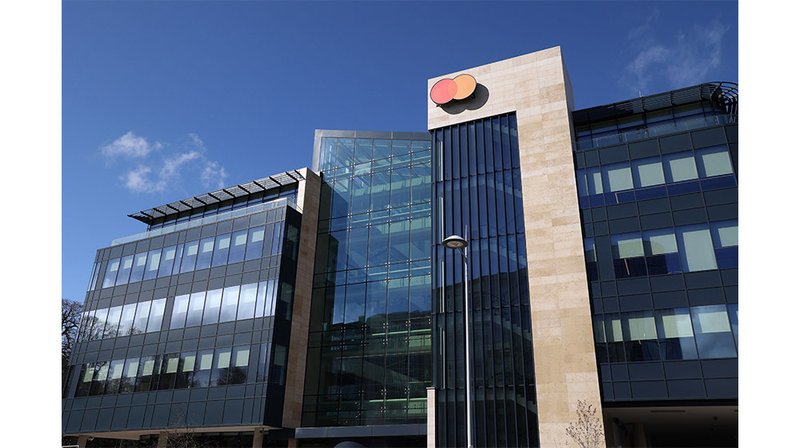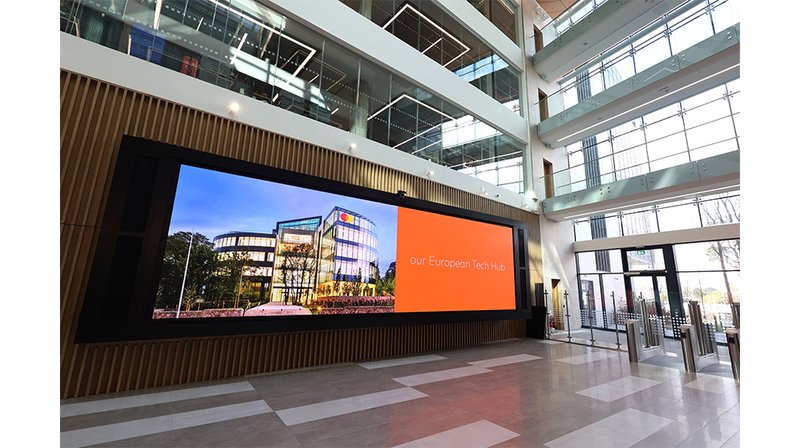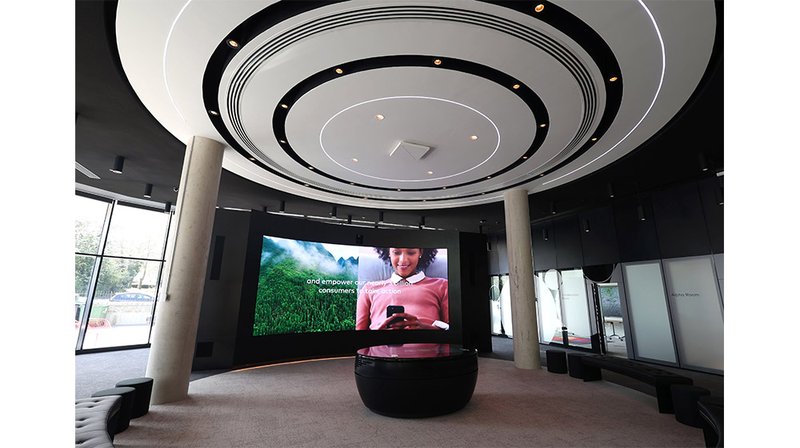It may still have the word ‘card’ in its name but, for some time now, Mastercard has been expanding into other means of payment in a sector that has changed beyond recognition over the past years. While a mobile phone is already all you need to pay and get paid, experts agree this is just the beginning.
During the recent Media Showcase at Mastercard’s state-of-the-art European Tech Hub in Dublin, GOLD learned more about the rapidly evolving future of payments and how commerce is being transformed by innovation.

Following an introduction by Mark Barnett, President of Mastercard Europe, journalists from around Europe and the Balkans heard Ken Moore, Chief Innovation Officer talk about ‘The Next Economy & Future of Payments’, elaborating on the themes highlighted in Mastercard’s latest Signals report entitled The Future of Payments.
Then, Kelly Devine, Divisional President, UK & Ireland and Danielle Maloney Country Manager, Ireland turned a ‘Spotlight on Ireland’ during a fireside chat on how payment practices in the country and beyond were evolving.
Next, Ed McLaughlin, President & Chief Technology Officer elaborated on the technology being embraced and developed by Mastercard for payments and related practices. Mark Barnett then moderated a panel discussion with Martin Ogarp (Head of Cards Centre of Excellence, Nordea) and Eric Tak (Global Head, Retail Cards & Payments, ING), which explored the changing payments scene and how their own banks are being impacted.
Reflecting Mastercard’s ease with technology, journalists were addressed by a hologram of Jorn Lambert (Chief Digital Officer), while Aisling O’Brien and Fiona Hyland from the Mastercard Experience Centre demonstrated a futuristic Virtual Reality shopping experience.
O’Brien later also explained how Mastercard already uses advanced AI technology to identify and tag potentially fraudulent transactions within milliseconds.

Journalists were later given a tour of the Tech Hub by Jenny Kavanagh (Vice President, Dublin Technology Hub), to learn that it offers a wide variety of spaces taking varying employees’ needs in consideration, was designed using Biophilic Design principles seeking to connect the building with nature and people, and constructed to support a healthier workplace environment. Hives on the roof of the building even produce honey for employees and guests.
The Future of Payments
The Media Showcase followed Mastercard’s latest Signals report on ‘The Future of Payments.’ As the report states, Mastercard believes that, “Innovation will transform commerce and usher in ‘The Next Economy’ by 2030.”
According to the report, companies will use emerging technologies to make this possible while empowered consumers will influence how this new era ultimately takes shape. Changes are anticipated to include new types of money and ways to spend it, intelligent experiences that span physical and digital environments, and an intense focus on sustainability and inclusivity. Payments will also play a central role in enabling ‘The Next Economy’.
Mastercard’s report explores this idea and nine trends that will create faster, more flexible payment options, unleash economic activity, and give consumers greater convenience, choice and security. As noted by Mastercard, the first three trends are changing the ways we access and use assets, manage and make payments, and automate complex commercial transactions.
Entitled ‘A Tokenised World’, the first trend refers to the ability to digitise just about any type of asset – from a beach house to personal data – which will make their value accessible and exchangeable, essentially creating new forms of money.
The second (‘Ubiquitous Wallets’) suggests that next-generation digital wallets will become a single point of control where people will manage their identities, assets and payments.
The third trend is entitled ‘Programmable Payments.’ As Mastercard explains, payments are currently programmed to occur automatically when simple conditions are met. This could be a bank app that pays the mortgage on the first of the month, for example. In the future, programmable payments will be applied to complex, large-scale transactions. This can revolutionise supply chains finance, royalty payments, government remittances and more.

Immersive Commerce
As noted in Mastercard’s report, the next three payment trends will advance immersive commerce by enabling people to work, play and spend in interoperable mixed reality environments, aided by augmented and virtual reality environments.
Two concepts that have upended the financial services sector – open banking and embedded finance – will come together to create ‘Connected Finance’ solutions that streamline payments across physical, digital and virtual domains. These will include stores, arenas, train stations, online games, super apps, smart cities and metaverses, according to Mastercard.
The next trend is ‘Borderless Rails’, where commercial activity will break through barriers that currently restrict the flow of money, data, goods and services across jurisdictional and digital borders – expanding markets and giving consumers greater convenience and choice.
In the third trend in this category (‘Unleashing Acceptance’), the customer journey will be populated with new payment options that make the checkout experience more fluid and flexible.
The final three trends described in ‘The Future of Payments’ will impact sustainability and inclusivity.

When it comes to ‘Inclusive Credit’, new credit scoring models and lending solutions will put money in the hands of historically underbanked people and bolster under-financed communities worldwide.
In the second trend in this category (‘Conscious Consumerism’) consumers will use their economic power to reward companies that tangibly support their social and environmental objectives – accelerating revenues to businesses that realise environmental and social goals and operate ethically.
The final trend is entitled ‘Embedded Trust’, which, as suggested by Mastercard, will see consumers drive the cybersecurity agenda by doing business with companies that successfully protect customers’ personal information.
“Ultimately, we will have more payment options, more connectivity, less friction and fewer barriers – resulting in faster, more efficient commerce and new economic opportunities for individuals and businesses large and small,” Mastercard’s report proposes.


